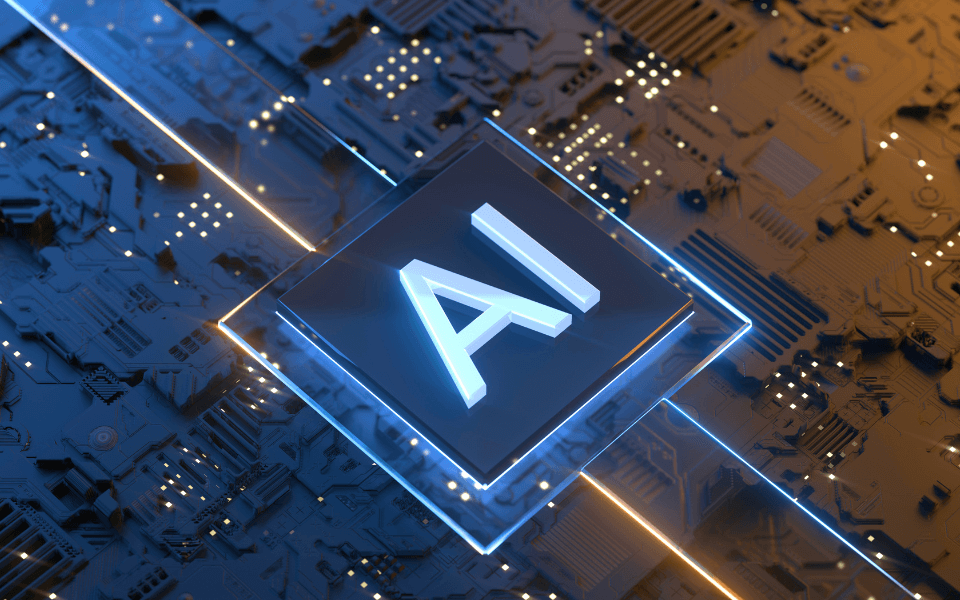
In this fast-paced era of automation and artificial intelligence, the job landscape is shifting at an unprecedented pace. The rapid advancement of technology has left many workers anxious about the future of their careers. Will robots and AI systems replace humans in their jobs? Is there a sanctuary where one can find job security in this age of automation? In this article, we’ll explore the concept of sanctuary roles – jobs that are AI-safe – and delve into the industries and skills that can provide a haven for those seeking career stability.
What Are Sanctuary Roles, and Why Do They Matter?
Sanctuary roles, in the context of our discussion, refer to jobs that are less susceptible to automation and AI takeover. These roles provide a sense of security in an increasingly uncertain job market. But why should you care about sanctuary roles?
The automation wave is not slowing down, and AI systems are becoming more sophisticated by the day. Jobs that were once considered safe are now at risk. To secure your future and maintain career stability, it’s essential to understand what sanctuary roles are and how you can tap into them.
So, What Makes a Job AI-Safe?
AI-safe jobs possess certain characteristics that make them resistant to automation. These characteristics often involve human qualities that machines find challenging to replicate. These qualities include:
- Creativity: Jobs that require creative thinking, innovation, and imagination are less likely to be automated. Creativity is a uniquely human trait that involves connecting seemingly unrelated dots and generating novel ideas.
- Emotional Intelligence: Roles that demand empathy, compassion, and understanding of human emotions are challenging for AI to perform. Human interactions, especially in fields like counseling and healthcare, rely heavily on emotional intelligence.
- Complex Problem Solving: Jobs that involve solving complex and non-standard problems are less prone to automation. These roles require a deep understanding of context, which AI often struggles with.
- Adaptability: Positions that require rapid adaptation to new situations or environments are more likely to remain AI-safe. Human adaptability, both in terms of physical and cognitive skills, is a significant advantage.
- Ethical Decision-Making: Roles that involve making ethical decisions, such as those in law and ethics committees, often require nuanced judgment that AI lacks.
Industries Offering Sanctuary Roles

Now that we’ve explored what sanctuary roles are let’s dive into some industries and job categories that currently provide refuge from the automation storm.
1. Healthcare and Medicine
Are there sanctuary roles in healthcare?
Absolutely. While AI is making inroads into healthcare, there are still many roles that require a distinctly human touch. Here are some AI-safe jobs in this sector:
| Sanctuary Roles in Healthcare |
| 1. Physicians and Surgeons |
| 2. Registered Nurses |
| 3. Psychologists |
| 4. Occupational Therapists |
| 5. Physical Therapists |
Healthcare professionals, such as physicians and nurses, rely on their deep understanding of the human body and emotions, making their roles challenging to automate. Moreover, the ethical and emotional aspects of patient care make these roles highly AI-resistant.
2. Education
Can educators find sanctuary in an automated world?
Absolutely. Education is a field that heavily relies on human interaction, mentorship, and emotional intelligence. Here are some sanctuary roles in education:
| Sanctuary Roles in Education |
| 1. Teachers |
| 2. School Counselors |
| 3. Education Administrators |
| 4. Special Education Teachers |
| 5. Educational Psychologists |
Teachers play a crucial role in shaping young minds, and their ability to adapt to individual students’ needs is a skill that AI cannot replicate entirely. School counselors and special education teachers, in particular, rely on emotional intelligence and empathy to provide effective support to students.
3. Creative Arts and Design
Can creativity be automated?
While AI can assist in creative tasks, it struggles to match the depth of human creativity. Here are some sanctuary roles in the creative arts and design industry:
| Sanctuary Roles in Creative Arts and Design |
| 1. Graphic Designers |
| 2. Writers and Authors |
| 3. Musicians and Composers |
| 4. Film Directors |
| 5. Architects |
Creativity is at the heart of these roles. Whether it’s designing visual content, crafting compelling stories, composing music, or designing buildings, these professions demand a level of creativity and originality that AI currently cannot replicate.
4. Law and Legal Services
Is the legal field immune to automation?
Not entirely, but it offers sanctuary roles that require complex decision-making and ethical judgment. Here are some AI-safe jobs in law and legal services:
| Sanctuary Roles in Law and Legal Services |
| 1. Judges and Magistrates |
| 2. Lawyers |
| 3. Paralegals and Legal Assistants |
| 4. Mediators |
| 5. Legal Ethics Consultants |
The legal field often deals with intricate cases that require nuanced judgment and ethical considerations. Judges, lawyers, and legal consultants play pivotal roles in ensuring justice is served, making their jobs less prone to automation.
5. Skilled Trades
Can craftsmanship be automated?
While automation has made some inroads into skilled trades, there are still numerous AI-safe roles that require craftsmanship and hands-on expertise. Here are some sanctuary roles in skilled trades:
| Sanctuary Roles in Skilled Trades |
| 1. Electricians |
| 2. Plumbers |
| 3. Carpenters |
| 4. Welders |
| 5. HVAC Technicians |
These roles demand practical skills, adaptability, and problem-solving abilities that are hard for AI to replicate. Whether it’s wiring a building, fixing plumbing issues, or crafting wooden furniture, skilled trades remain a sanctuary for hands-on workers.
Developing Skills for Sanctuary Roles

Now that we’ve identified sanctuary roles in various industries, you might be wondering how to prepare for these jobs. Here are some strategies and skills to hone for an AI-safe career:
1. Embrace Lifelong Learning
Question: Is continuous learning essential for sanctuary roles?
Answer: Absolutely! The job market is constantly evolving, and staying up-to-date with industry trends and emerging technologies is crucial. Consider enrolling in online courses, attending workshops, or pursuing advanced degrees to expand your skill set.
2. Enhance Your Soft Skills
Question: Are soft skills important in sanctuary roles?
Answer: Yes, they are. Soft skills like communication, empathy, adaptability, and problem-solving are highly valued in sanctuary roles. Practice and develop these skills to excel in your chosen field.
3. Networking and Mentorship
Question: Can networking help secure sanctuary roles?
Answer: Networking can open doors to opportunities and provide valuable insights into your industry. Seek mentorship from experienced professionals who can guide you on your career path.
4. Leverage Technology Wisely
Question: Is technology relevant even in sanctuary roles?
Answer: Yes, technology can enhance your effectiveness in sanctuary roles. Familiarize yourself with tools and software relevant to your industry to stay competitive and efficient.
Final Thoughts
In the age of automation and AI, sanctuary roles offer a beacon of hope for those seeking job security and career stability. These roles capitalize on uniquely human qualities that are challenging for machines to replicate. By identifying sanctuary roles in industries such as healthcare, education, creative arts, law, and skilled trades, and by developing the necessary skills, you can carve out a promising and secure future in the ever-changing job landscape. Embrace the sanctuary roles, and let your career thrive in the age of automation.
Frequently Asked Questions (FAQ)
Q1: What are Sanctuary Roles?
A1: Sanctuary roles are jobs that are less susceptible to automation and artificial intelligence (AI). These roles typically require human qualities like creativity, emotional intelligence, complex problem-solving, adaptability, and ethical decision-making, making them resistant to AI takeover.
Q2: Why do Sanctuary Roles matter in the age of automation?
A2: Sanctuary roles matter because they provide job security and stability in an era where automation and AI are rapidly changing the job market. These roles offer a haven for individuals looking to protect their careers from being replaced by machines.
Q3: How can I identify Sanctuary Roles in my industry?
A3: To identify Sanctuary Roles in your industry, look for jobs that rely on qualities like creativity, emotional intelligence, complex decision-making, adaptability, and ethical judgment. Jobs that involve extensive human interaction and nuanced tasks are often sanctuary roles.
Q4: Are there Sanctuary Roles in the healthcare sector?
A4: Yes, there are Sanctuary Roles in healthcare. Professions like physicians, nurses, psychologists, occupational therapists, and physical therapists require a deep understanding of human emotions and complex medical issues, making them less susceptible to automation.
Q5: Can educators find Sanctuary Roles in the education field?
A5: Absolutely. Teachers, school counselors, education administrators, special education teachers, and educational psychologists rely on human interaction, mentorship, and emotional intelligence, making them sanctuary roles in education.
Q6: What role does creativity play in sanctuary roles?
A6: Creativity is a crucial factor in sanctuary roles. Jobs in creative arts and design, such as graphic designers, writers, musicians, film directors, and architects, require a level of creativity and originality that AI cannot fully replicate.
Q7: Is the legal field immune to automation?
A7: The legal field is not entirely immune to automation, but it offers sanctuary roles that involve complex decision-making and ethical judgment. Jobs like judges, lawyers, paralegals, mediators, and legal ethics consultants require human judgment that is hard to replace with AI.
Q8: How can I prepare for Sanctuary Roles?
A8: To prepare for Sanctuary Roles, embrace lifelong learning by staying updated with industry trends, enhance soft skills like communication and adaptability, network and seek mentorship, and leverage relevant technology to enhance your effectiveness in your chosen field.
Q9: Can I find Sanctuary Roles in skilled trades?
A9: Yes, skilled trades offer sanctuary roles that require craftsmanship and hands-on expertise. Professions like electricians, plumbers, carpenters, welders, and HVAC technicians rely on practical skills that are difficult for AI to replicate.
Q10: Are sanctuary roles relevant even in rapidly changing industries?
A10: Yes, sanctuary roles remain relevant in rapidly changing industries. While technology evolves, the qualities and skills associated with sanctuary roles continue to be in demand because they involve uniquely human attributes that machines cannot replace completely.